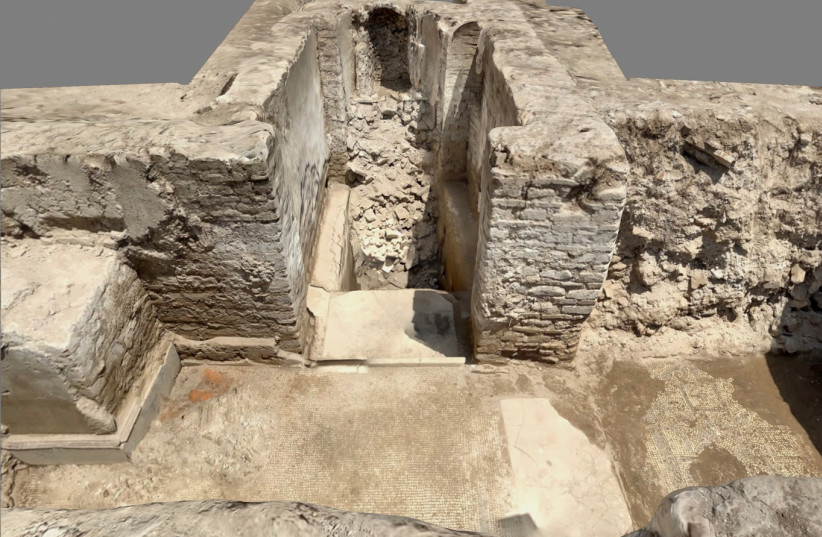Ancient fragments paint a picture of Roman emperor Hadrian’s daily life
Fragments found from 126 CE in Porta Marina in Italy were discovered by a team of archaeologists from the University of Catania and the Polytechnic University of Bari, according to the Italian culture ministry.
The fragments, which were once a calendar or “fasti ostienses” detailing 126-128 CE, belonged to the Roman emperor Hadrian. Fasti ostienses were used to record the upcoming events for emperors and other nobility figures in Roman society.
Emperor Hadrian was the Roman ruler responsible for building a Roman colony in ancient Israel, leading multiple exiles and genocides against the Jewish people and for the name “Palestine.”
#Archeologia, emersi due nuovi frammenti dei Fasti Ostienses dalla seconda campagna di scavo del progetto “OPS – Ostia Post Scriptum” del @parcostiantica con @unict12 e @PolibaOfficial. Uno dei due menziona fatti accaduti sotto il regno di Adriano. https://t.co/cuwc5dyocL #MiC pic.twitter.com/GrfRANeEzA
— Ministero della Cultura (@MiC_Italia) August 14, 2023
Parts of the calendar had originally been discovered in 1940, 1941, 1969, and 1972. The Vatican Museums currently hold the other segments, which have a date range from 49-175 CE.
The excavations also revealed a mosaic floor that will eventually be opened to the public.
 Roman ruins from ancient Ostia. (credit: Italian Ministry of Culture)
Roman ruins from ancient Ostia. (credit: Italian Ministry of Culture)“It is also an extraordinary discovery which, if on the one hand, it increases and integrates what we know about the activity of that great emperor who was Hadrian, bringing new acquisitions on the very important building activity he conducted in Rome, on the other it reconfirms the immense potential of ancient Ostia for an increasingly in-depth knowledge and dissemination of our past,” said Alessandro D’Alessio, the director of the Archaeological Park of ancient Ostia.
The life of Emperor Hadrian
The calendar sheds light on the life of Hadrian, telling of his achievement of the title Pater Patriae, or father of the country, and the ways he celebrated the momentous occasion.
In another segment, the calendar tells of a trip the emperor made on April 11, 128 CE to Africa, and his return to Rome in July or August.
After arriving back from Africa, the emperor made a stop in Athens where he celebrated his 11th anniversary in power by consecrating a building that experts theorized was either the Pantheon or a temple dedicated to Venus or Roma.





Comments are closed.